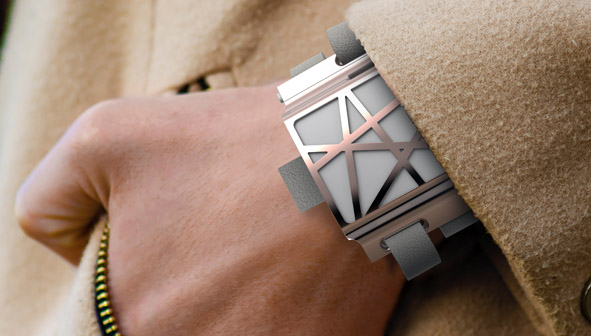UK government backs hot-flush preventing wearable
- May 19, 2020
- imc

UK start-up Astinno has received a government grant to increase development for a wearable that can detect and stop menopausal hot flushes.
The £360,000 grant from Innovate UK will boost development of the Grace smart-bracelet that provides automated cooling for menopausal hot flushes.
Astinno and its new partners Morgan Innovation & Technology and Loughborough University have been awarded the grant.
Astinno founder Peter Astbury described Grace as a world first, using specialist cooling technology to automatically detect and counter debilitating menopausal hot flushes night and day.
“You don’t have to look hard to find someone who would benefit from Grace,” Astbury said.
Every year in the UK alone there are an estimated 300,000 women who start experiencing hot flushes. By 2025 it’s predicted that 12% of the entire world’s population will be directly affected. That’s one billion people. The hot flushes market is expected to rise to $16bn in the next seven years.
Historically, the menopause has been an under-funded and under-researched area of health with available products being broadly hormone-based or manually operated. Astbury found the menopause had been ignored by technology firms and that existing devices were ineffective in controlling a hot flush.
For those experiencing night sweats, for example, consciously needing to activate a manual cooling product still results in being woken up time and time again, causing sleep deprivation. Less frequently discussed, chronic sleep deprivation is a common side effect of hot flushes and can have a serious impact on long-term health. Astbury said the key to solving hot flushes is “early detection, coupled with automated cooling. That is exactly what Astinno’s product Grace is designed to do.”
Grace uses a range of sensors fine-tuned by algorithms that work to detect signs of a hot flush before it happens. The jewellery-like wearable then activates a localised cooling patch on the skin, working with the body naturally to counter the effects of the flush before it has had a chance to develop. Astbury likens the sensation to running wrists under cold water, a common method women use to relieve the effects of a hot flush.
The grant that Astinno, Morgan IAT and Loughborough University have been awarded is part of Innovate UK’s Smart grants scheme. Of almost 1300 applications, fewer than 100 are being funded, including Grace.
Astbury said: “As an area that has attracted such little attention from investors until recently, this is really promising for menopause and women’s health as a whole.”
Grace has already caught the eye of industry experts. The product has achieved success in innovation competitions, winning an Axa Health Tech & You Award (2018), being named National Runner Up for the James Dyson Award (2017) and being shortlisted for a D&AD Impact Award (2018).
With the funding, Hampshire-based Morgan IAT becomes Astinno’s technical partner, working to refine the detection and cooling capability of Grace. Loughborough University joins the development team as a research partner on the grant project. Its staff at the National Centre for Sports & Exercise Medicine (NCSEM) department will establish efficacy metrics around the technology. Together, the project team aim to demonstrate technical and commercial feasibility of the product during the next 12 months.
The initial concept for Grace was designed by Astbury during his final year at Loughborough University where he studied industrial design and technology. Following a conversation with a manager at work, he found that products for menopause were few and far between.
Morgan IAT is a family-run innovation company based at a modern factory facility in Petersfield, Hampshire. It was founded in 1987 with the company initially specialising in developing medical products. In the late 1980s, in partnership with a GP, Morgan IAT conceived and launched its first lesion generator, which was successfully sold into the National Health Service in 1989.




